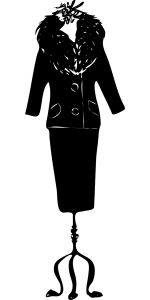“Avoid on-the-nose writing.” —Jerry Jenkins
Here’s a passage from a book published in the 20’s: The Marriage of Barry Wicklow by Ruby M. Ayres. It contains 7 problems that bog the story for today’s reader. I’ve superscripted instances with the problem numbers from the list after the passage.
There was1,7 a moment of silence. Barry was looking2,7 at her with eager eyes. In a man’s indefinite way he was realizing2,7 vaguely3,4 that she had5 changed a great deal since he last saw her, though he hardly knew how or in what way.
Her hair was7 differently4 dressed. Her clothes were7 different3. There was1,7 something—a sort of flippancy about her whole manner that turned him cold.
“Good afternoon,” she said composedly4. She pushed forward a chair.
“Won’t you sit down?”6 Barry was remembering2,7 how Hulbert had said5 that she blushed whenever she was7 spoken to. There was2,7 no sign of agitation in her face now. Her blue eyes met his dispassionately4.
She was7dressed all in black, but such smart black, that somehow she did not look as if she were7 in mourning. Barry, glancing at her hands, saw that she no longer wore his ring, that she wore no rings at all.
He ignored the chair she had offered5. He went straight to his point.
“I’ve been7 talking to Hulbert—you know Hulbert. He tells me you are7 going on the stage under the management of that – that man Greaves.”
He spoke a little breathlessly6. “Well,” said Hazel. “What if I am7?”
“I won’t have it, that’s all,” Barry answered excitedly4. “You’re7 my wife, and I won’t have it3, I tell you3! The stage is7 no place for you. I told you when I first met you that I hated it. I repeat it now3, and I forbid you—I absolutely forbid you3—to have anything to do with it or that man Greaves3.”
7 Problems
- Weak opening “there was” surfaces three times.
- Progressive tense isn’t necessary and slows the pace; past tense works.
- Repetitive thoughts and dialogue mirror reality but bog down the story.
- Some adverbs are unnecessary or telling.
- Perfect past tense jars actions into “history.” Past tense works.
- Sentences placed in the wrong paragraphs.
- Sixteen forms of “to be” used.
One Rewrite
For a moment neither spoke. Barry scanned her lithe form. Since he last saw Hazel, what made her now seem like a stranger? For one thing, she wore her hair upswept and severer than the soft curls that once embraced her face.
Hazel’s gaze from her half-lidded eyes met his. “Good afternoon.” She shoved a chair forward. “Won’t you sit down?”
 Her flippancy iced his heart. What had happened to what Hulbert called the blushing woman? And, outfitted in her elegant ensemble, all in black, she didn’t look as if she was in mourning.
Her flippancy iced his heart. What had happened to what Hulbert called the blushing woman? And, outfitted in her elegant ensemble, all in black, she didn’t look as if she was in mourning.
Barry glanced at her hands. She no longer wore his ring. She wore no rings at all.
He sidestepped the chair she offered. “I’ve been talking to Hulbert—you know Hulbert. He tells me you plan to go on the stage under the management of that—that man Greaves.”
Hazel arched an eyebrow. “What if I am?”
“You’re my wife, and I won’t have it!” Barry chopped the air. “The stage is no place for you. I told you when I first met you that I hated it. I forbid you to have anything to do with it—or with Greaves.”
Avoid these 7 habits that drain readers. Click to tweet.
What habits are you trying to break in your writing?








Great advice Zoe!
Thanks for sharing.
PamT
Thank you, Pam.
Good reminders, Zoe. Interesting how style changes over the years. Everybody needs to pay attention to your content.
Thanks, Tanya. I’m sure readers in the 20s were fine with the wordiness and repetition. And if readers wanted the feel of the 20s all around, they might prefer the original over any rewrite.